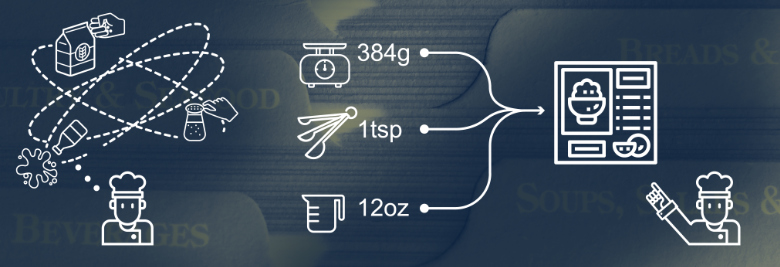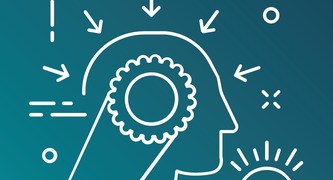Have you been taking notes?

Teachable moments abound in the world of design
Pencils ready? It’s back-to-school season, and we’re stoked! After a restorative summer break, we’re looking forward to diving into another year of learning and growing in service of great workplace—we’re also back in your inbox with some provocative ponderables. Apropos of the season, this month’s “On Our Minds” takes a closer look at learning about… learning. See the answer key below!
On our minds
Every year, back-to-school season conjures up its signature blend of nostalgia and curiosity. Whether, for you, that means the halcyon days of high school football games or the unburdened exploration of a young child (possibly your own), it’s a time to reflect on the ways in which our society supports individual and group growth. It gets us thinking about the way people learn and come up with ideas.
For the better part of half a century, would-be ideators have joined together and shut themselves into rooms for that time-honored ritual: the brainstorm. Believe it or not, there was a time when no one had heard of such a thing. People still came up with ideas (some great, some not-so-great), and some of those people probably even used a similarly unfettered group-based process. But it wasn’t until the middle of the twentieth century that the term was actually coined ( by advertisers, of course) and understood to be a thing that people did to come up with ideas. Brainstorming wasn’t so much invented as reified. Somebody finally thought to write it all down.
Description precedes teachability. From the birth of haute cuisine to personality research, one can view the growth of human knowledge as the documentation and elaboration of process. The world of business and management has seen multiple waves of this; someone documents and systematizes the previously ephemeral or specific, making it teachable and available to all. In the early 20th century, it was Taylor, Ford, and industrial processes. Then, it was management structure and decision-making—the evolution of the modern-day MBA. Then came Kahneman, Tversky, and a new way of thinking about individual human ability.
Lately, there has been a proliferation of efforts to teach the ‘softer’ side of human interaction and collaborative problem solving. Programs like the Brown-RISD Dual Degree program and the Stanford D School have made "design thinking"—the practice of employing a designer’s mindset to problems and processes outside the scope of design work—into its own recognized field of study. (Team members at IDEO use “ Cornell DEA sits within the College of Human Ecology, and comes not out of design or business but home economics. (The OG of DIY, it touches on everything from nutrition to textile design!) In these ways academic programs create a pedagogy around practice, elevating the day-to-day through both research and teaching.
As work has shifted from manufacturing to sectors such as finance, innovation, and technology, the modern economy rewards creativity and (by way of the transitive property), environments and cultures that support it. Organizations are challenged to facilitate creativity, and we are once again on such a precipice of new knowledge, needing to document what works and what doesn't. For example, experts on motivation have shown that carrots and sticks do more harm than good when it comes to complex problems. The workplace corollary? Autonomy enabled through flexible workplace, encouraging people to seek out the environment that best serves their needs.
The big-picture work of PLASTARC includes documenting and standardizing the methods and evidence behind workplace social science research. We aim to take what might have been just hunches about the design of a great environment and explore them, creating repeatable and shareable findings. We've got the resources to enable organizations to shift their approach to workplace and reliably create places that people want to use. With more and more data, our industry is preparing for workplace to look more like a field of engineering than ever before.
From the archives
Time to brush up on your contemporary history! A year ago, we had just published this piece about workplace autonomy on CoreNet’s Pulse blog. The upshot? Offering people more autonomy in the workplace is good for both performance and wellness—and yes, that will be on the test!
Go back a couple of years more to find our interview with Architect Magazine. In it, PLASTARC Founder Melissa Marsh discusses the need for social factors to influence design, and shares some tantalizing tidbits about our coworking research.
Was that the bell? We have to get to our next class! Drop us a line to tell us about your favorite kind of documentation, or just send us a photo of your new Trapper Keeper.
In Case You Missed It
Uh-oh! Class is already in session! Here’s what you might have missed if you slept through first period:

Street Makeovers, Quantified
Fascinating case studies take a look at data-driven urban transformations.

Bloomberg Data 4 Good Exchange
Data scientists, policy makers, and technologists explored the use of data for the public good.

The Economist’s Hour
This new book challenges long-standing economic theory that the author argues has not served our collective interest.

The Great Open Office Debate
Metropolis hosted this in-depth look at the open floor plan office—its history, its problems, and strategies that can make it more comfortable and functional

Algorithmic approaches to bus allocation
Boston invested in a ground-breaking effort to optimize their school bus routes. Unfortunately, creating the complex algorithm was only part of the problem.

Ricky joins the PLASTARC team
We’re happy to welcome our newest Sociospatial Analyst. Welcome aboard, Ricky!
Looking Ahead
We hope the summer left you feeling refreshed and ready for a fall full of opportunities to study up. Here’s what’s on this month’s lesson plan:







